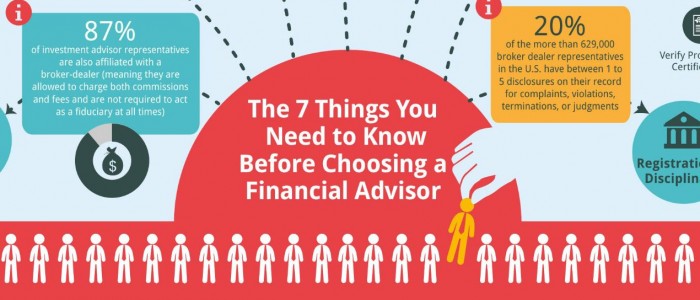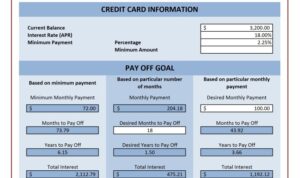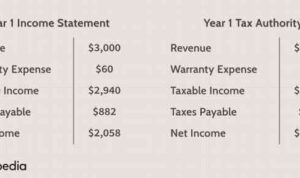When it comes to making informed decisions about your financial future, selecting the right financial advisor is paramount. From navigating the sea of credentials to deciphering fee structures, the process can be overwhelming. In this guide, we’ll break down the key factors and steps to help you choose a financial advisor with confidence and clarity.
Factors to consider when choosing a financial advisor

When selecting a financial advisor, there are several important factors to keep in mind to ensure you find the right fit for your financial goals and needs.
Types of financial advisors
- Robo-advisors: Automated platforms that provide algorithm-based investment advice.
- Certified Financial Planners (CFP): Professionals who have met rigorous education and experience requirements.
- Registered Investment Advisors (RIA): Fiduciaries who are legally bound to act in the best interests of their clients.
Importance of credentials and certifications
Choosing a financial advisor with recognized credentials, such as a CFP designation, can provide assurance that the advisor has undergone specific training and meets certain ethical standards.
Experience and expertise in the financial industry
Look for a financial advisor with a solid track record and experience in dealing with clients similar to your financial situation. Their expertise can make a significant difference in helping you achieve your financial goals.
Understanding the advisor’s fee structure
It’s crucial to understand how your financial advisor is compensated, whether through commissions, fees, or a combination of both. Make sure their fee structure aligns with your financial objectives and doesn’t create conflicts of interest.
Research and due diligence
When looking for a financial advisor, it is crucial to conduct thorough research and due diligence to ensure you are making an informed decision about who to trust with your finances.
Step-by-step guide on researching potential financial advisors
- Start by asking for recommendations from friends, family, or colleagues who have had positive experiences with financial advisors.
- Utilize online resources such as the Financial Industry Regulatory Authority (FINRA) or the Securities and Exchange Commission (SEC) to verify the credentials of potential advisors.
- Check professional organizations like the Certified Financial Planner Board of Standards for a list of certified financial planners in your area.
- Schedule initial consultations with multiple advisors to ask about their experience, services offered, and fees.
The significance of checking a financial advisor’s background and disciplinary history
- Research any disciplinary actions or complaints filed against the advisor by checking databases like BrokerCheck or the SEC’s Investment Adviser Public Disclosure website.
- Look into the advisor’s educational background, certifications, and years of experience in the industry to ensure they are qualified to handle your finances.
Reading client reviews and testimonials when evaluating financial advisors
- Search online for client reviews and testimonials to get a sense of the advisor’s reputation and the quality of service they provide.
- Consider reaching out to current or past clients directly to ask about their experiences working with the advisor.
Tips on verifying an advisor’s registration and credentials with regulatory bodies
- Confirm that the advisor is registered with the appropriate regulatory bodies such as the SEC or state securities regulators.
- Check for any complaints or disciplinary actions against the advisor by searching through regulatory databases.
- Verify the advisor’s credentials, such as Certified Financial Planner (CFP) or Chartered Financial Analyst (CFA) designation, to ensure they have the expertise needed to help you achieve your financial goals.
Meeting and interviewing potential financial advisors
When meeting and interviewing potential financial advisors, it’s crucial to ask the right questions and assess various aspects to ensure they are the right fit for your financial goals and needs.
Key Questions to Ask During an Initial Meeting
- What is your experience in financial planning and investment management?
- Can you explain your fee structure and how you are compensated?
- What is your approach to risk management and how do you tailor it to individual clients?
- How often do you communicate with clients and provide updates on their investments?
Assessing Advisor’s Communication Style and Compatibility
It’s important to evaluate how well you can communicate with your financial advisor and whether they understand your financial goals and risk tolerance. A good advisor should be able to explain complex financial concepts in a way that you can easily understand and be willing to listen to your concerns and preferences.
Evaluating Advisor’s Investment Philosophy and Financial Planning Approach
- Look into the advisor’s investment philosophy to see if it aligns with your own beliefs and goals.
- Understand how the advisor creates financial plans and whether they are tailored to individual client needs or follow a more generic approach.
- Consider whether the advisor takes a long-term or short-term view on investments and how that fits with your financial objectives.
Gauging Advisor’s Willingness to Educate and Empower Clients
Assess how willing the financial advisor is to educate and empower you to make informed financial decisions. A good advisor should not only provide recommendations but also explain the rationale behind them and help you understand the implications of different choices. They should be committed to helping you increase your financial literacy and confidence in managing your finances.
Making the final decision
When it comes to making the final decision on choosing a financial advisor, there are several key factors to consider that can help you make the best choice for your financial goals and needs.
Reviewing and comparing proposals
It is crucial to review and compare proposals from different financial advisors to understand the services they offer, their fees, and how they align with your financial objectives. This will help you make an informed decision based on what each advisor can provide.
Advisor’s track record and performance history
Consider the advisor’s track record and performance history to gauge their expertise and success in managing finances. Look for any accolades, certifications, or client testimonials that can attest to their credibility and reliability in the field.
Negotiating fees and services
When meeting with a potential financial advisor, don’t hesitate to negotiate fees and services to ensure you are getting the best value for your money. Be transparent about your budget and expectations, and work together to come to a mutually beneficial agreement.
Trusting your instincts
Ultimately, trust your instincts when making the final decision on choosing a financial advisor. If you feel comfortable with a particular advisor, have confidence in their abilities, and believe they have your best interests at heart, then you are likely making the right choice for your financial future.






